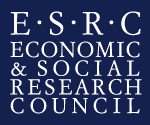The Care Pathways and Outcomes Study
This is a longitudinal study that has been following all the 374 children who were in care and under 5 years old on 31st March 2000 in Northern Ireland. This research aims to compare how these young people are getting on in their different types of placement. It also seeks to explore the levels of stability and placement breakdown that is occurring, and to identify the reasons for this.
Currently funded by the Economic and Social Research Council

-
Recent Posts
- Project Update 7: The need to know or/and search – is curiosity the right word?
- Regional variations in care planning
- Project Update 6: The well-being of care-experienced young adults in Northern Ireland
- Project Update 5: Youth’s experiences of (and future expectations of) parenthood
- Project Update 4: The 3 THINGS that are HELPING care-experienced young people COPE with difficult experiences in their lives
Categories
Tag cloud
- adoption
- belonging
- birth families
- birth parents
- care planning
- contact
- coping
- decision-making
- Deprivation
- digital technologies
- disabled young people
- disruption
- Early adversity
- education
- ethical considerations
- family
- foster care
- future
- health
- kinship care
- mental health
- parenting
- pets
- public engagement
- regional variations
- relationships
- research methods
- Residence Orders
- resilience
- searching
- social media
- social workers
- stability
- stress
- subjective well-being
- supports
- young parents
Recruitment video
Archives
Recent Comments
- Montserrat Fargas on About this blog
- Julia Rimmer on About this blog
- Montserrat Fargas on Project Update 4: The 3 THINGS that are HELPING care-experienced young people COPE with difficult experiences in their lives
- Brenda Horgan on Project Update 4: The 3 THINGS that are HELPING care-experienced young people COPE with difficult experiences in their lives
- Montserrat Fargas on Project Update 2: Placement disruptions are often not the end of the relationship
Meta
Category Archives: Phase 3 findings
Regional variations in care planning
A child in a particular area of Northern Ireland has a bigger chance to be placed for adoption (or to return to their birth parents, or to be fostered by relatives) than a child in another area with similar background … Continue reading
Posted in Articles, Phase 3 findings, Research
Tagged care planning, decision-making, regional variations
Leave a comment
Kinship care: Messages from research and practice on the struggle and tribulations of older carers
After attending an ARK workshop held in Queen’s University Belfast on the 7th June entitled ‘Exploring inequalities in caring: grandparents’ experiences of kinship care from multiple perspectives’, I would like to reflect on the main messages I believe came out … Continue reading
The digital media and young people’s social relationships
Digital technologies have changed the ways in which we relate to each other, work and play, and might have even altered who we are. These changes are happening rapidly. The online and offline world are starting to feel interconnected, especially … Continue reading
Posted in Phase 3 findings, Support
Tagged digital technologies, relationships, social media
1 Comment
Young people’s sense of belonging: The importance of ‘family practices’
Feeling of belonging to a family is likely to be very important for the young people in our study at this early adulthood stage of their lives. We will be asking questions in relation to this key issue when we … Continue reading
Friends, pets, and social workers: who is important in young people’s lives and why
We are social beings, and relationships are crucial. We need other people to help and support us in different ways throughout our lives, from birth to old age: to take care of us and give us affection when we are … Continue reading
Posted in Phase 3 findings, Research
Tagged pets, relationships, social workers, supports
Leave a comment
Stressing out about foster carer stress
All of us who are parents are familiar with the stresses that can be involved in raising children. Imagine then how difficult this would be if these ‘normal’ stresses were exacerbated by the impact of early childhood trauma. That’s the … Continue reading
Health and wellbeing of care experienced young people – a crucial concern of this study
“Health is a state of complete physical, mental and social well-being, and not merely the absence of disease or infirmity.” (World Health Organization) Social inequality is associated with poor health for certain vulnerable social groups. Children in care are one … Continue reading
What does formal education mean for care experienced young people?
“Education is not preparation for life; education is life itself” (John Dewey) In Northern Ireland, in 2013/2014, 73% of looked after children attained at least one GCSE/GNVQ at grades A* to G; compared to nearly 100% of the general school … Continue reading
